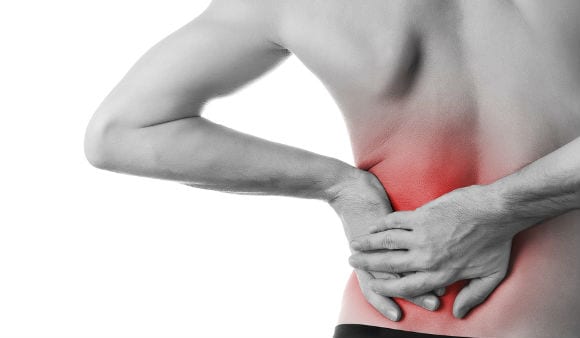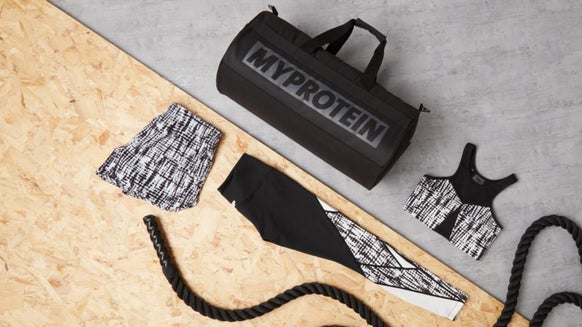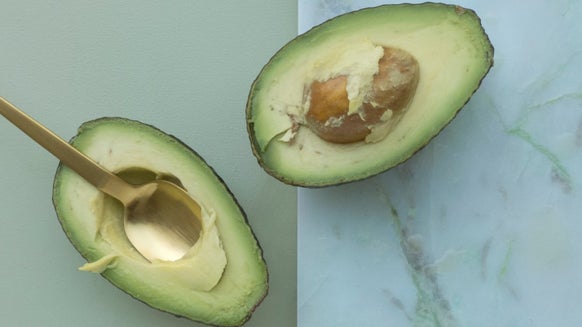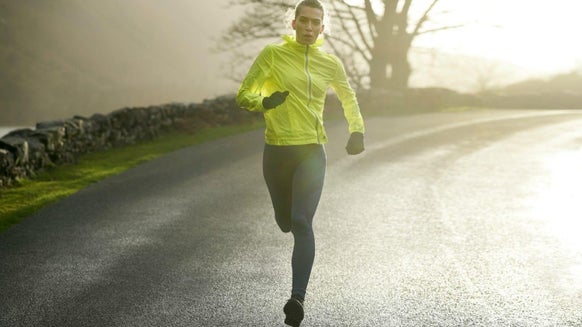Exercises For Lower Back Pain

Exercises For Lower Back Pain
By Myprotein Writer Christopher Tack: Lead clinician and owner of All Powers Rehabilitation & Conditioning Combat Sports Physiotherapy service, and works for Guys & St Thomas Hospital Private Physiotherapy Service in London.
If you internet search for “the best exercises for lower back pain” you get 43,900,000 hits!
This article will hopefully help you treat and deal with your lower back pain through a set of different exercises and movements. The truth is, NO single specific method of exercise has been found through scientific studies to help lower back pain and that's why a range of different exercises are recommended. I will try to explain which exercises may benefit in certain circumstances.
Simply put, rarely is back pain (LBP) the same between two different people- even if they have the same job, training regime, etc. The population of back pain sufferers tends to differ clinically within the group of people being examined. Everyone has different anatomical changes (which may not even be important) and everyone adapts their physiology and behaviour differently to try to reduce back pain.
The type of back pain is important!
Back pain is common, with approximately 70% of people suffering some time during their life time1. The recognised classification system used by doctors and physiotherapists is the “diagnostic triage” which allocates an individual into a group depending upon your symptoms. 95% of people tend to be diagnosed with mechanical low back pain, 4% radiculopathy (spinal nerve root problems) and 1% serious spinal pathology.
Most people have a form of “mechanical” LBP, and within this group biomedical clinicians tend to search for an anatomical reason for the pain- disc rupture, facet joint injury, etc. However, as a large percentage of asymptomatic people have changes in their spine on MRI2, such as disc “bulging”, the link between “damage” and pain is actually not so important.
What is more important is how your body adapts to an initial injury. That may involve some muscles tightening up or becoming hypertonic (“over active”). Or it may mean other muscles become inhibited by pain and start to waste (atrophy). Either way this can lead to muscle weakness and loss of movement in the spine generally and at specific vertebrae. It is the role of your health professional to identify which areas of your body are reacting to the pain and injury.
MOVEMENT
Movement has a number of benefits to the human body when injured, whereby exercise is a way of exposing your body to different movement patterns which are less painful. This can improve biomechanics-
e.g. if 2 of your vertebrae are stiff, improving movement locally at this level may improve your ability to transmit load through the spine into the pelvis. This leads to less pressure or chemical change which may cause pain.
Alternately, exposure to specific movements also has effects on the nervous system and immune system to promote chemical reactions in the tissues to reduce pain. These movements may be large fully body movements or small single joint movements. Each person may benefit from a different pattern of motion to reduce pain and promote good physical behaviour.
Good examples of localised movements beneficial for back pain are pelvic tilts, thoracolumbar dissociation and bridging.


Each of the above exercises promotes motion at the level or above/ below the lumbar spine. This is supported by the evidence of benefits of low level Pilates or yoga exercises for back pain3, 4. Remember the body will respond to the most often utilised behaviour- so if you sit all day in a flexed position your rehabilitative movements may need to promote extension to challenge and change your tissues. If you deadlift with a hyper-extended back you may well need to learn how to flex the lower portion of your lumbar spine.
Flexibility
Once low level movement is improved we move into flexibility and particularly of those muscles attaching above and below the lumbar region. The hamstrings and hip flexors commonly maintain adaptive behaviours in individuals who have desk jobs. Stretching either dynamically or statically (the jury remains out I'm afraid) will be beneficial to reduce back pain. I tend to suggest a combination of 30 second static stretches or 30 second bouts if dynamic stretch movements for 4 sets.


Isolated movement and flexibility tend to be assisted by hands on therapy including joint mobilisations; manipulation and soft tissue massage5. My theory is that this type of intervention assists the body to move within the session and allows patients to feel the benefit of novel movements prior to completing exercises to maintain this extra mobility.
“Stability” or Isometric Control
Or course not all patients are stiff and tight, some people have back pain due to more mobility in their spine with less "neuromuscular control" or inability to maintain positional awareness of their spine. These patients tend to be labelled as weak- however I find it is actually an intolerance to load that tends to provoke a painful response.
These patients may benefit from "strengthening" exercises. However, I do feel that enough of the scientific literature has debunked the idea of isolated deep abdominal exercises6. In my experience you get better results with strengthening the entire "core" and promoting dissociation from the spine and legs during movement. This means the ability to keep the spine under control whilst performing hip flexion and extension.
Isometric exercises such as plank variations can provide you with a starting point for strengthening. These can be progressed to four point kneeling exercises to further challenge the spinal muscles to sustain a spinal position whilst the body moves around the spine. Remember a healthy spine can move and keep still!


Anti-movement exercises
A continuation of this theme is for the spine to be able to remain controlled whilst extra movement demands are placed on it. These are "anti-movement" exercises. For example, a Pallof press is a great way of teaching the spine to withstand a rotational challenge (anti rotation) whilst adding force through the tissues to increase its tolerance. A deadlift would be an anti flexion exercise, a farmers walk would be an anti side flexion exercise. All have a place in the rehabilitation of back pain.



High quality international and national guidelines written by the most experienced clinicians and experts in back pain fail to identify a preferred form of exercise for LBP7. This includes the NICE guidelines8 which I fortunately had a role in developing. Partly this is down to the differences within the population, as you can't expect people with different symptoms to improve with the same type of exercises. However, also it is due to the fact that exercise success is dependent upon the time and manner it is applied. Again an experienced practitioner can assist with the timing of exercise prescription. Also, remember the best exercise is the one you will stick with!
Prescription & Periodization
It is always advisable to examine how you move to decide where your rehabilitative conditioning should start. Perform a body weight squat or an unloaded dead lift. See how and where your movement comes from. The best solution is to ask a professional but a lot can be learned from video taping your movement. Can you hinge efficiently at your hips when you descend into a squat? Does your spine bend or is it kept straight?
Movement exercises must be high volume, minimal load to promote behaviour change (daily!). This stage should be between 2 to 4 weeks and involves daily exposure to these movements (e.g. 50 repetitions per day).
Strengthening exercises should start with low but progressive load, volume at a level to promote muscle endurance with 3 sets of >12 repetitions with 30-50% 1RM* with appropriate rest between sessions (2-3 times per week). This period should be up to 12 weeks long to show significant muscle changes.
* Remember your 1RM for injured tissue is likely to be less than your normal 1RM, you will need to assess the tolerable level which you can load within pain limits.
Take Home Message
Remember, learn how to move, get help if you need assistance, increase the range of that movement, learn how to control that movement, make that control a basis for load tolerance and strength development.
Thanks for reading.
Koes, B.W., Van Tulder, M.W. & Thomas, S. (2006) Diagnosis and treatment of low back pain. British Medical Journal. 332, 7555, 1430–1434.
Jensen, M.C., Brant-Zawadski, M.N., Obuchowski, N., Modic, M.T., Malkasian, D. & Ross, J.C. (1994) Magnetic resonance imaging of the lumbar spine in people without back pain. New England Journal of Medicine. 331, 2, 69-73.
Lim, E.C.W., Poh, R.L.C., Low, A.Y. & Wong, W.P. (2011) Effects of Pilates-Based Exercises on Pain and Disability in Individuals With Persistent Nonspecific Low Back Pain: A Systematic Review With Meta-analysis. Journal of Orthopaedic & Sports Physical Therapy, 41, 2, 70-80.
Cramer, H., Lauche, R., Haller, H. & Dobos, G. (2013) A systematic review and meta-analysis of yoga for low back pain. Clinical Journal of Pain. 29(5):450-60.
Furlan, A.D., Imamura, M., Dryden, T. & Irvin, E. (2009) Massage for low back pain: an updated systematic review within the framework of the Cochrane Back Review Group. Spine (Phila, Pa, 1979). 34, 16, 1669-84.
Lederman, E. J (2010) The myth of core stability. Bodw Mov Ther. 14,1, 84-98.
Airaksinen et al. (2004) EUROPEAN GUIDELINES FOR THE MANAGEMENT OF CHRONIC NON-SPECIFIC LOW BACK PAIN. COST B13 Working Group. European Commission Research Directorate General. http://www.backpaineurope.org/web/html/wg2_results.html








